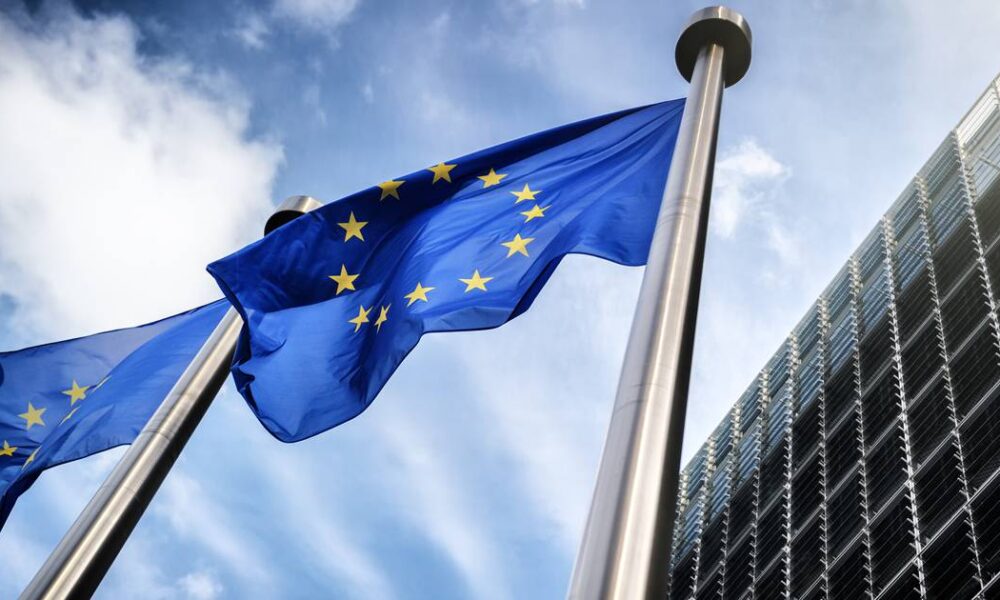Regulation
How the crypto industry is profiting from EU political change as up to 400 million voters cast their ballots – DL News

- Cryptocurrency associations are making demands to the next European administration.
- The industry’s biggest challenge is competing with stronger economies.
- European Commission officials respond to industry demands.
As European voters head to the polls across the continent, the crypto industry has sent a clear message to European Union officials: grow the sector. Keep your momentum going.
A few 373 million voters will vote this weekend in countries including Germany, France and Spain to elect the new leaders who will represent them in the European Parliament for the next five years.
The crypto industry has seized on the changing political winds, laying out a roadmap in a manifesto that executives say will sharpen the new officials’ priorities.
THE manifestsigned by four professional associations, argues that the EU is rapidly losing ground to America and Asia in the race to host new digital economies.
The roadmap will be a “source of inspiration for the next policy cycle,” said Joachim Schwerin, an economist at the European Commission who helps shape policy on Europe’s digital markets. DL News.
The next five years
Schwerin said a stronger partnership between the public and private sectors is essential.
“The next five years will be years of co-learning, development of advanced infrastructure and use cases, and more meaningful advancements toward interoperability based on industry standards. »
Unlike their American counterparts, European regulators have provided the crypto industry with a set of regulations within which it can operate.
Join the community to receive our latest stories and updates
But Europe’s industry faces a new battle: global financial centers compete for a growing army of crypto users.
Their manifesto suggests that blockchain technology could underpin global trade transparency and cybersecurity systems, as well as advance a potential 16 trillion dollars tokenized economy.
The web3 industry is expected to grow from around $1 billion to nearly $60 billion by 2028, according to a French study. report establishing more policy recommendations released in May.
European competitiveness put to the test
The industry’s demands come as European bigwigs warn of a decline in the competitiveness of the bloc’s market, already seen as lagging behind in the global race.
“In an era where technology increasingly dominates, Europe faces the challenge of keeping pace with rapid global progress,” Enrico Letta, a former Italian prime minister, wrote in an April statement. report.
He said the continent has failed to nurture a strong ecosystem for the technology industry and should prioritize mobilizing private capital.
Letta is not the only one to comment on the lethargy of European markets.
The EU represents 11% of global stock market capitalization, compared to 45% for the United States, according to a study. report of the European Securities and Markets Authority.
“Greater commitment is needed to create a truly single market for European capital,” the regulators wrote.
Gigantic task
“The EU undertook a colossal task over the last five-year policy cycle to put in place legislation for the blockchain and digital assets sector, exploiting the state of regulatory infighting across the Atlantic to achieve in pole position,” said Erwin Voloder, Director-General of the EU. policy at the European Blockchain Association.
This association has published a supplement open letter in April, the focus was on blockchain infrastructures.
“We hope to see a stronger focus on digital identity and blockchain for the real economy,” said Erwin Voloder, head of policy and the European Blockchain Association.
This trend is already taking shape, as the EU adopted digital identity legislation this year. And as a victory for blockchain proponents, the text includes a line about the use of zero-knowledge cryptography.
Voloder is among trade association leaders who have sent hundreds of lawmakers their visions for the next term.
Over the past few months, crypto organizations have released a series of manifestos and open letters to the next European administration.
As the United States moves toward establishing regulation for crypto assets, major players are involved in lawsuits regarding the gray area of legal definitions of crypto assets.
MiCA first
Meanwhile, the European industry is gradually moving towards implementing the regulation on crypto-asset markets.
The regulation was a world-first, designed specifically for crypto service providers and issuers. The rules come into force in stages from the end of June.
MiCA joined other laws aimed at combating money laundering and tightening rules for financial services involving crypto companies, passed since 2019.
But for now, when it comes to blockchain and crypto, the European Commission has its work cut out for it.
The European Commission will publish reports on developments in the field of DeFi, NFTs and crypto lending by the end of the year. These are the instructions noted in the MiCA rulebook.
“The manifestos and wishlists cover these three issues, but also go beyond,” a European Commission official, who has seen some of the industry reports, told DL News.
“Experience in implementing MiCA and market developments will be determining factors on what, if anything, we can offer.”
